The Second Mile (Matthew 5.41)
On October 16, 1991, now 32 years ago at this writing, my dad was in the process of being discharged from two weeks of therapy in the hospital to reduce his dependency upon nitroglycerin tablets for his recurring and persistent angina. When a person suffers with heart blood vessel disease, the blood flow to his heart is impaired, reducing the necessary level of oxygen-rich blood to his heart muscle. The resulting chest pain, or angina as it is called, is literally a muscle cramp or spasm in the heart. The tiny little nitroglycerin tablets placed under the tongue speed relief to the heart muscle by inducing the blood vessels to expand and allowing the blood to flow more freely. The more demand there is on the heart for blood, the more potential for angina, and therefore the more consumption of nitroglycerine tablets.
When I arrived to take my dad home, he was noticeably reluctant to leave the hospital, but was pliant in adhering to hospital policy. Arrangements had been made to employ homemaker services for him upon his return to home. I asked my dad to put on the clothes I had brought for him, and if he wanted help, I would give it to him to accomplish the task. He declined the help, and I excused myself to settle his account in the hospital cashier’s office.
It was a beautiful October day in 1991, and I promised him a ride in the country before heading back to his apartment. When I returned to his hospital room from the cashier’s office, he had dressed himself and was standing near his bedside hunched over, grabbing his chest and crying for his nitro pills. I had none, and could find none in his drawer by the bed. The ones he thought were there had been taken away that morning. A moment later he collapsed unconscious, in full fatal arrhythmic cardiac arrest, quickly becoming cyanotic from deprivation of oxygen…
Within a split second a nurse was in the room with IV’s, hailing the resuscitation unit and escorting me out of the room. I heard the heroics going on from the hallway. All the reasoning processes in my intellect were stunned as if by contact with a high voltage wire. I reflected on everything God had revealed to me concerning the events leading to this moment…
I recalled vividly that another doctor had given my dad two years to survive if he chose not to undergo coronary by-pass surgery in September of 1989. Actually, the surgeon whose consult my father heard, was reluctant at that time to undertake the massive invasive effort because of my father’s many underlying conditions which put him at higher risk for a “negative patient outcome;” and his multiple infirmities also interfered with his ability to undertake the aggressive physical activity necessary to keep his circulation pumping well to the renovated infrastructure of his heart. Lacking a sufficient amount of encouragement for the success of the surgery, my dad chose not to seek surgery and the long process of rehabilitation, but rather to control his diet, exercise, and manipulate his nitroglycerine medication…
He had lived two years with a predictably deteriorating heart condition. I reflected on all the ways which God had given me to encourage my dad to use his remaining time to know the truth of Jesus the Messiah. I remembered that only the day before my dad’s collapse in his hospital room, God had given me one of those infrequent opportunities to witness to him without preaching at him. My dad’s roommate commented about my “Isaiah 53” sweatshirt, and began to ask questions. My dad listened carefully to the dialogue between his roommate and me. When we were finished with our exchange, dad’s roommate turned to him and asked, “Do you believe what your daughter has been discussing with me here?” My dad replied that he had not yet embraced my testimony of the truth. My own heart had responded, “So be it. Thy will be done, Lord.”
Now, one day later, while the cardiac resuscitation team labored to restore and stabilize my dad’s heartbeat and respiration, my prayers to God were as a dumb man, and I could only beg God again for surrender to His will. I had no more revelation. The veil of God’s high thoughts had been lowered upon our lives…
A staff nurse checked on me to assess the effect of this shock on my own vital condition. God had shut my mouth. In my haze of thought, it did not occur to me the staff would ventilate my dad without prior permission. When my haze cleared for a moment I stepped up to the door of my dad’s room and told them he did not wish to be ventilated. It was too late. They had taken the matter for granted to save his life. My dad would be on a respirator now, for as long a time as God would ordain this technological intervention in his life. I had walked a good distance with my dad over the past two years, but I sensed the tighter grip of my Father’s Hand on my own as He led me into that second mile.
To Him That Is Afflicted (Job 6.14)
In the days following, the science of medicine revealed to all of us involved that my dad had successfully kept himself alive on the nitroglycerine pills for two years. What became humiliatingly obvious to us was the fact that the dependency they were trying to cure had indeed been a justified and effective dependency after all. Indeed, the only reason my dad was in the hospital in the first place was that his housekeeper had moved his nitroglycerin medication when she cleaned and had failed to put it back in its customary place where my dad could find it. It left him helpless and panicked when his next angina attack occurred and forced him to summon emergency help…
My dad reasoned hopefully that the ER medical staff would consult with his clinical care staff to confirm the regimen and treatment he was receiving. He thought the ER staff would simply administer the necessary dose of nitroglycerin to relieve his muscle cramp in his heart and dispense enough nitro to sustain him until he could find his regular supply at home. But they did not. The medical staff decided my dad was too dependent on nitroglycerin without considering why he had chosen this therapy instead of surgery. It was helping him live till he could no longer live…
Several days later, when my dad was in the CCU and had been weaned from the respirator, he faced the critical decision of whether to be evaluated for coronary by-pass surgery or to face a life of increasing dependence upon nitroglycerin medication and the help of other people. The staff engaged the services of cardiologists and surgeons to collect data on the advisability of bypass surgery for my dad. I will never forget the one kind Jewish doctor who, having examined all the clinical data relevant to the extent of the blood vessel disease and my dad’s attendant medical problems, wept at his bedside. He had the courage to be truthful about what expectations we should have from by-pass surgery. He told us plainly that my dad’s life expectancy would be about equal if he remained on a constant nitroglycerin IV with very restricted activity. In short, his life expectancy with or without bypass surgery would be not much more than two months…
When my dad proposed his contentment to take the nitro therapy option till his death, the nursing staff howled in protest. They feared repeated coronary crises with him, and added that the physical brutality needed to resuscitate a coronary victim could eventually kill the patient if required at regular intervals. Fear of malpractice threats further fueled their protests. With the awful spectre of the dreaded nursing home, and the fear of death looming in his mind, my dad allowed the doctors to continue their manipulation of all the clinical data which would support an educated decision in favor of bypass surgery. They proposed that the big advantage in my dad’s case was the relatively good condition of his heart muscle. They added that with a defibrillating unit implanted in his abdomen, he could be part of an ongoing study in this field of medicine. My dad’s fear of death and the glossy promos advanced by the technology experts lured him to submit to their plan of action…
They were not privy to the relationship I had with my dad. They did not have the advantage of watching his life over the previous two years. I prayed as I reflected upon what knowledge God had given me of my dad. Wisdom and compassion told my heart that my dad was frail at 81. With advanced diabetes and the immobilizing effects of arthritis and neuropathy in his legs, my dad’s chief vehicle for regaining mobility and fighting invalidism was handicapped. Prudence told my heart that the trauma this surgery would inflict upon his immune system would be cruel if not fatal. Again, I prayed God, “Thy will be done.” Only one doctor, a mere consultant, seemed to understand that to “him that is afflicted pity should be shown from his friends” (Job 6.14)…
“Even though he forsakes the fear of the Almighty” (Job 6.14). I knew that the doctors had a challenge: to triumph through technology. They were interested in making my dad functional and claiming the victory in the name of technology. They gave no thought to the oath they had taken to “first do no harm.” I viewed his final decision to sign the papers for surgery as God’s way of giving him more time to examine at close range what he had been avoiding: what the Scriptures say waits for those who refuse to embrace the truth of Jesus’ atonement for sin. I knew from the outset that God was in no way obliged to fulfill the prophecies of the doctors who proclaimed “new life” through bypass, even though it would be an investment of more than $30,000 (1991) to procure it…
As God willed, my dad and I had exactly three months from the date of his life-saving surgery to become acquainted with grief. His condition upon release from the hospital required nursing home care, and he suffered through every day of his life during that time. At one point in his “recovery” he was re-hospitalized in critical condition for “unforeseen” complications arising from the immobilizing effects of advanced diabetes on his digestive tract. The long-term antibiotics needed to prevent post-surgical infection had enabled a life-threatening bacteria to propagate in his already handicapped digestive tract. He was bitter. He was negative. He (and I) discovered that his own will to live could not reverse the dying process in his life, despite all the coaxings of his social worker on the topic. He still could not physically perform…
While I refused his requests to seek legal pursuit of euthanasia, I agreed with him that he had no obligation to adhere to the rigors of the rehabilitation effort imposed upon him. We discussed a hospice level of care, one that would not force my dad to perform beyond what his body dictated was reasonable. However, the staff could not accept any consideration that there were unseen reasons to accommodate my dad’s requests. No credence from the medical profession was given to my dad’s own sense of progressive failure. Truth is, there was not found any clinical data to support his complaints–till after his death. It is as if God’s veil had been dropped over all our eyes, forbidding us to see what high thoughts He was outworking in my dad’s life.
The Magnitude of Grief (Job 6.2)
I must confess, I felt caught in the middle. I found myself urging my dad to take one day at a time, and give the staff some credit for wanting to give him his “land-legs” back. I found myself requesting more sensitivity from the nursing staff to what his changeable needs were from day to day. My own understanding fled; how could both sides be telling the truth? He was surrounded by functioning people whose vain minds rejected the truth to which his dying life testified. His “grief was very great” (Job 2.13). He had been dealt a cruel blow, and sold a pack of troubles for $30,000. And I had been challenged to suffer along with him, loving him through it…
God gave me no answers about what high thoughts He was outworking in my dad’s life. His only command to me throughout the test was to redeem the time He gave me with my dad. Redeeming the time came in the form of the straightforward tasks of assuming the legal responsibilities for him, being his representative with his creditors, banks and doctors. It also took the form of listening to his sorrows and complaints, his pleasant memories of his childhood; holding his hand when he was afraid; being a person he could trust; weeping with him, laughing with him answering his questions concerning the Scriptures; and praying for him always. There were those fitting and precious moments when God gave me opportunities to testify again of the mercies of God my dad had personally seen in my own loss of control of my life. The unexpected challenge to redeem the time came in the form of my exposure to others who were confronted with the same test of loving dear ones in dire need. My prayer life took on wider proportions…
I wept frequently. This test was bitter and inconvenient. In this phenomenal jungle of grief were exotic blends of emotions I had never seen mingled together in my life. There were times when I was not only fearful that my dad would refuse salvation before his death, but also as terrified as he of the loss of control his suffering testified to me. My own limitations and frailties taunted me from behind every thicket, when it was clear I was not doing everything right. I was both mortified and joyful at the realization that I am not the Messiah after all. God was hurting me deeply…
By the time of my dad’s final crisis with his infection, the doctors were turning to me for counsel as to whether they should intervene with their invasive equipment to make my dad functional again. Had I not submitted to the test God had ordained in my life to maintain a close relationship with him, fellowshipping in his sorrows, having the courage to be humiliated with him before God, I would not have known how to answer their pleadings with a clear conscience. When the last call came to me of my dad’s slipping into unconsciousness and unresponsiveness to any touch or speech, I remembered the words of Jesus at His last Passover–the words He spoke to Judas were: “What you do, do quickly” (John 13.27). But for me, I was begging God to have mercy with those words; and He answered, “Yes.”
Ultimately, God ordained the ineffectiveness of the antibiotic therapy on the intestinal infection which had hindered my dad’s recovery during those months. My soul knew all these things. My flesh reacted differently. Still another phenomenal blend of emotions emerged from the hothouse of grief…
As I stood by my dad’s bedside during his final hour, what my eyes saw was a man in a deep sleep. He was breathing on his own, although the infection had discolored and mottled his skin, and I was told he would not live long…
I would like to be able to record that I was heroic at that moment. I was not. My mind would not absorb the reality that my dad’s physical life would cease very soon. He was breathing, wasn’t he? I had been incessantly immersed for the past two years and three months in active ministry to this dear man’s physical life. I had a sacred commitment to minister to him, and I would not shrink from it…
Despite the fact that I could not wake him, nor did he open his eyes when I arrived at his bedside, the hope lingered that he would wake up again when he had gotten enough rest. Then I hoped he would tell me he had embraced Jesus as his Lord. Added to that was the deep longing to know what God was saying to him, now that He had my dad’s undivided attention…
When my dad stopped breathing an hour after my arrival, I was stunned and hurt that God had kept me from knowing what He was doing in dad’s heart and life through this suffering. I heard the words of my Father penetrating the haze of my shock and so I found them and I read them to the man He ordained for me to honor as my earthly father. My last words to him came from Deuteronomy 32.39:
Now see that I, even I, am He, And there is no God besides Me; I kill and I make alive; I wound and I heal; Nor is there any who can deliver from My hand.”
and Revelation 1.8, 18:
I am the Alpha and the Omega, the Beginning and the End,” says the Lord, “who is and who was and who is to come, the Almighty…I am He who lives, and was dead, and behold, I am alive forevermore. Amen. And I have the keys of Hades and of Death.”
My last prayer for him was that he would embrace the One Who has the power to redeem a man’s life from destruction.
Joint Heirs with Christ (Romans 8.17)
Since then, I have struggled with modern thought on the topic of suffering. I could launch into a very articulate attack upon what I view in medical philosophy concerning treatment of catastrophic illnesses. However, that is only the effect of a cause–a natural cause borne out of vain minds to seize and cling jealously to control of human life. Their panic imposes its pressure upon the medical profession, and goads doctors to perform as gods. The Hippocratic oath, however, originally recognized the limitations of human capability and bound the medical profession to “first do no harm.” If a patient does not respond to reasonable medical assistance, the Hippocratic oath dictates no further traumatizing of his body, regardless of available technology or the pressures of patient or loved ones to attempt restoration by inflicting harm upon the life of a patient. Reason and compassion dictate nursing that patient through the dying process under compassionate and supervised care. However, such an approach only humiliates us into realizing we are vulnerable and terminal. It in no way encourages us to think that living a dying kind of life is easy to do. We think ourselves far too enlightened to submit ourselves to such tests of dependence upon God and compassion in our age and…
If our brave new technology fails to achieve the control we desire in our lives, we have another “dignified” alternative to consider: legalized euthanasia.
The magnitude of my grief, therefore, is amplified with the prevalent obsession among men for life at any price. Inherent in this obsession for control of life is the ugly irony of the denial of the sanctity of human life. We have overlooked the purposes and mercies of God in testing us through our personal afflictions and the sufferings of our dear ones. Control over our lives forbids humility before God, and surrender of our shallow human hearts to the lessons of love in the afflictions of our dear ones.
Until I behold the glorious countenance of the Living God, face to face in glory, I will not be able to have knowledge of what God was doing in my dad’s heart in his suffering. What I do know is what God did to me when He loved me through my dad’s suffering. I will let Him do it again and again and again. I have already lost control of my own life; it belongs to Jesus, Who holds the keys of hell and of death. I do not want anyone else to control my life. I learned long ago that even I am unworthy of the task. And if my testimony is any comfort at all, I have discovered the unnatural courage required to face something as terrifying as losing control of my life. As an heir to the One Who is acquainted with grief (Isaiah 53), I have come to expect some fellowship in that heritage. I know of no better test than walking with dear ones on the bitter path of losing control of their lives–while I am losing control of my own.
Acquainted With Grief – February 2023… Another season… A greater test…
In the journal above, it took me an entire year to be able to even form the words in my mind to describe the events and the sorrows of my heart and the healings and the knowledge of God’s presence in every moment of that former season of grief…
In this current season of a greater grief, a greater joy, a greater crucible of emotions and struggles and hurts which only being with the Lord will ever heal, I found my journal from that earlier season when my heart is breaking once again and the crying will not stop. I began to read what I learned and what I wrote those 31 years ago. My journal on this season will follow soon. Till I write of it, I shall think on these thoughts and feed my soul with the faith and courage God gave me to face the grim reality of mortality at that season and trust Him for it in this one.



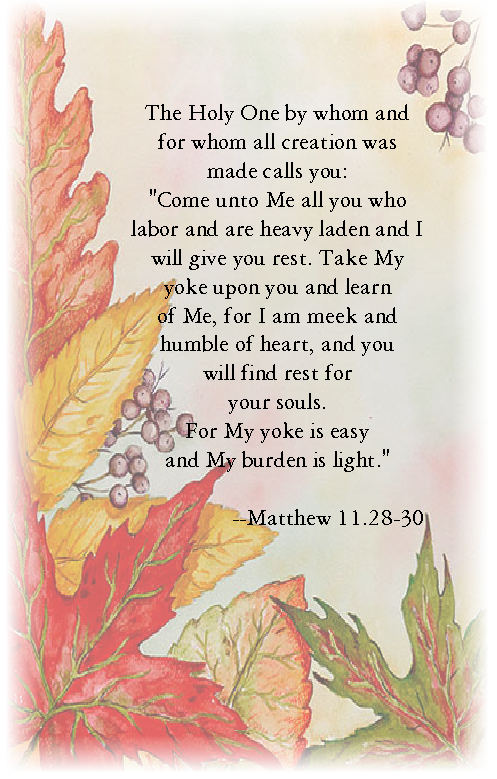
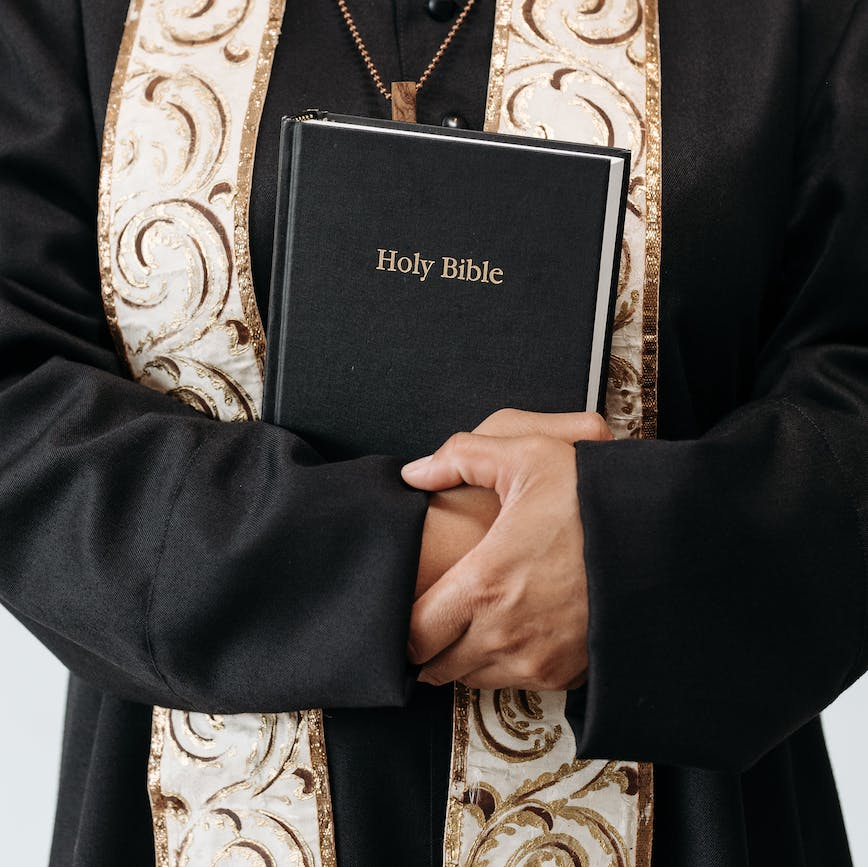
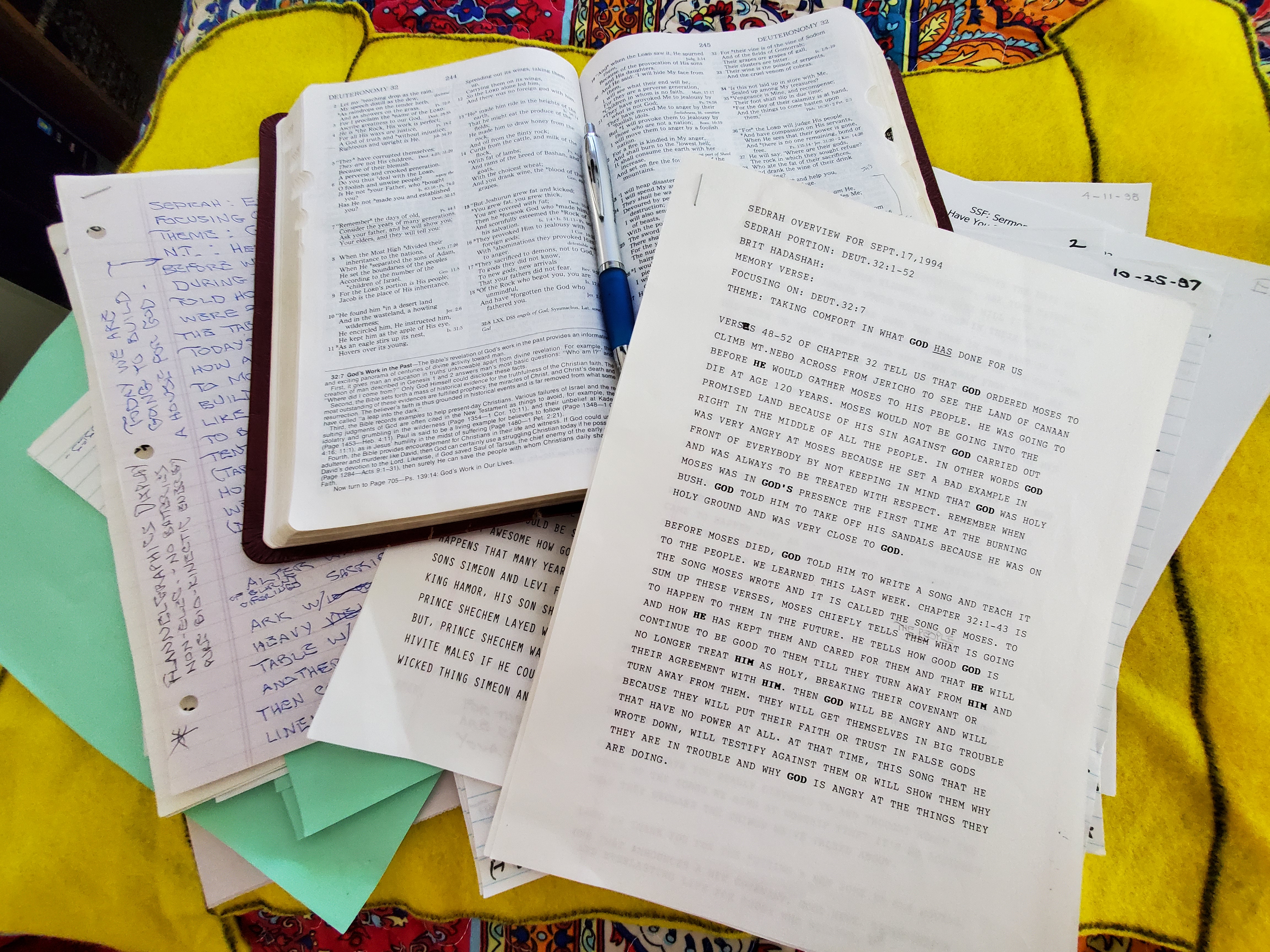
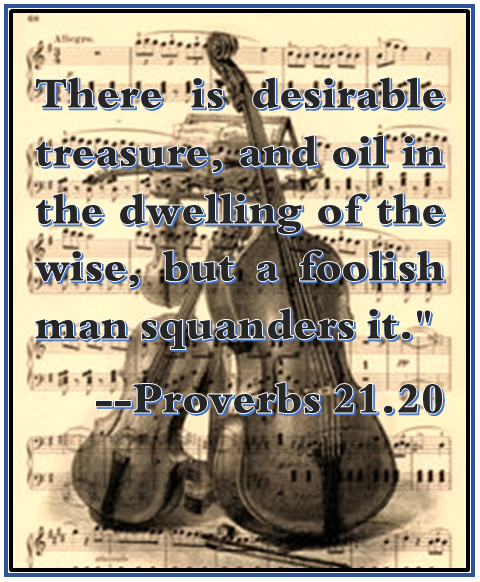 Wealth: an abundance of what is valuable; currency for exchange of goods and services is probably the first example which comes to mind in the modern culture. To classify wealth in the category of the abundance of minted or printed currency is the narrow view, because wealth includes other kinds of abundance, such as time and real properties and intellectual/creative/practical/occupational skills and spiritual wisdom–all of which, when properly stewarded and generously shared, yield dividends in one’s gladness of heart and which work effectively in the good welfare of others with whom we share them.
Wealth: an abundance of what is valuable; currency for exchange of goods and services is probably the first example which comes to mind in the modern culture. To classify wealth in the category of the abundance of minted or printed currency is the narrow view, because wealth includes other kinds of abundance, such as time and real properties and intellectual/creative/practical/occupational skills and spiritual wisdom–all of which, when properly stewarded and generously shared, yield dividends in one’s gladness of heart and which work effectively in the good welfare of others with whom we share them. Proverbs 28.8 is prophetic in nature as it promises the greedy and exploitative opportunist that everything he acquires by his code of acquisition will inevitably be handed over to the Righteous One who will pity the poor. This warning is in contrast to the prophetic blessing of Christ Jesus upon the meek–those who are gentle and compassionate in their dealings with others; these shall inherit the earth (Matthew 5.5)
Proverbs 28.8 is prophetic in nature as it promises the greedy and exploitative opportunist that everything he acquires by his code of acquisition will inevitably be handed over to the Righteous One who will pity the poor. This warning is in contrast to the prophetic blessing of Christ Jesus upon the meek–those who are gentle and compassionate in their dealings with others; these shall inherit the earth (Matthew 5.5)

 Summer is fully upon us. It is a season of fruit bearing and harvest in our region of the earth. I think how appropriate the Feast of Pentecost should herald this season of bearing fruit in the Kingdom of God. All the summer missions teams are gearing up and busy bringing the Gospel of the Lord Jesus to their communities and to places on the far reaches of the earth. And everywhere they go, there is a great spiritual challenge to confront with the Truth of who God is. Negativity is abundant; many things are unfolding at once which are beyond our control. Alongside all the overwhelming wonders of our times are the voices of the influencers who seek to drown out the painful realities by being agents of positive thinking. Some do it with music; some do it with visual media; some do it with spirituality which claims to draw the positive energy from within people but summons it with meditation on external sources from creation and the spirit world–both real and fabricated: powerful delusions.
Summer is fully upon us. It is a season of fruit bearing and harvest in our region of the earth. I think how appropriate the Feast of Pentecost should herald this season of bearing fruit in the Kingdom of God. All the summer missions teams are gearing up and busy bringing the Gospel of the Lord Jesus to their communities and to places on the far reaches of the earth. And everywhere they go, there is a great spiritual challenge to confront with the Truth of who God is. Negativity is abundant; many things are unfolding at once which are beyond our control. Alongside all the overwhelming wonders of our times are the voices of the influencers who seek to drown out the painful realities by being agents of positive thinking. Some do it with music; some do it with visual media; some do it with spirituality which claims to draw the positive energy from within people but summons it with meditation on external sources from creation and the spirit world–both real and fabricated: powerful delusions. For us who are not appointed to go, it is also a season to pray diligently for those who go, and also to pray for ears to hear and hearts to be open for the divine confrontation with the Word of God. While we wait, we must pray for our laborers that they would not merely evangelize but would fervently make disciples for the Lord Jesus Christ among those where they speak. This labor of love is the only way the fruit of the Holy Spirit will manifest and increase on the earth—through the lives of those who are made alive and are growing in the Lord Jesus Christ in His Word. It is this uncommon spirit of the love of God and joy in all circumstances that is a stunning witness in this age of negativity and the “positive” babblers who offer baseless and shallow peace and unity and “love.”
For us who are not appointed to go, it is also a season to pray diligently for those who go, and also to pray for ears to hear and hearts to be open for the divine confrontation with the Word of God. While we wait, we must pray for our laborers that they would not merely evangelize but would fervently make disciples for the Lord Jesus Christ among those where they speak. This labor of love is the only way the fruit of the Holy Spirit will manifest and increase on the earth—through the lives of those who are made alive and are growing in the Lord Jesus Christ in His Word. It is this uncommon spirit of the love of God and joy in all circumstances that is a stunning witness in this age of negativity and the “positive” babblers who offer baseless and shallow peace and unity and “love.”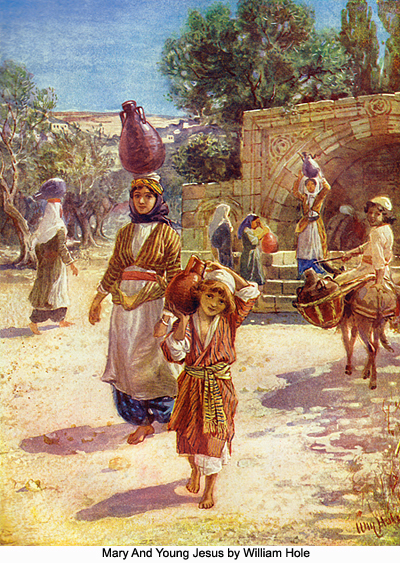

 McLean Presbyterian Church
McLean Presbyterian Church Bible Gateway
Bible Gateway